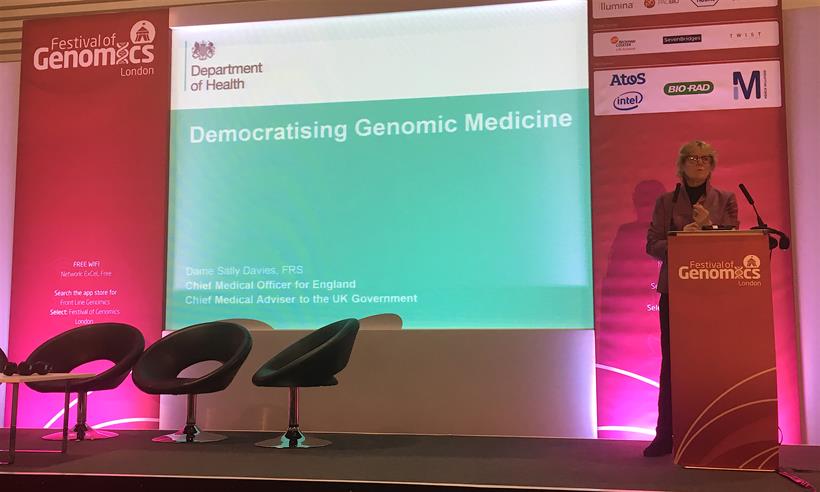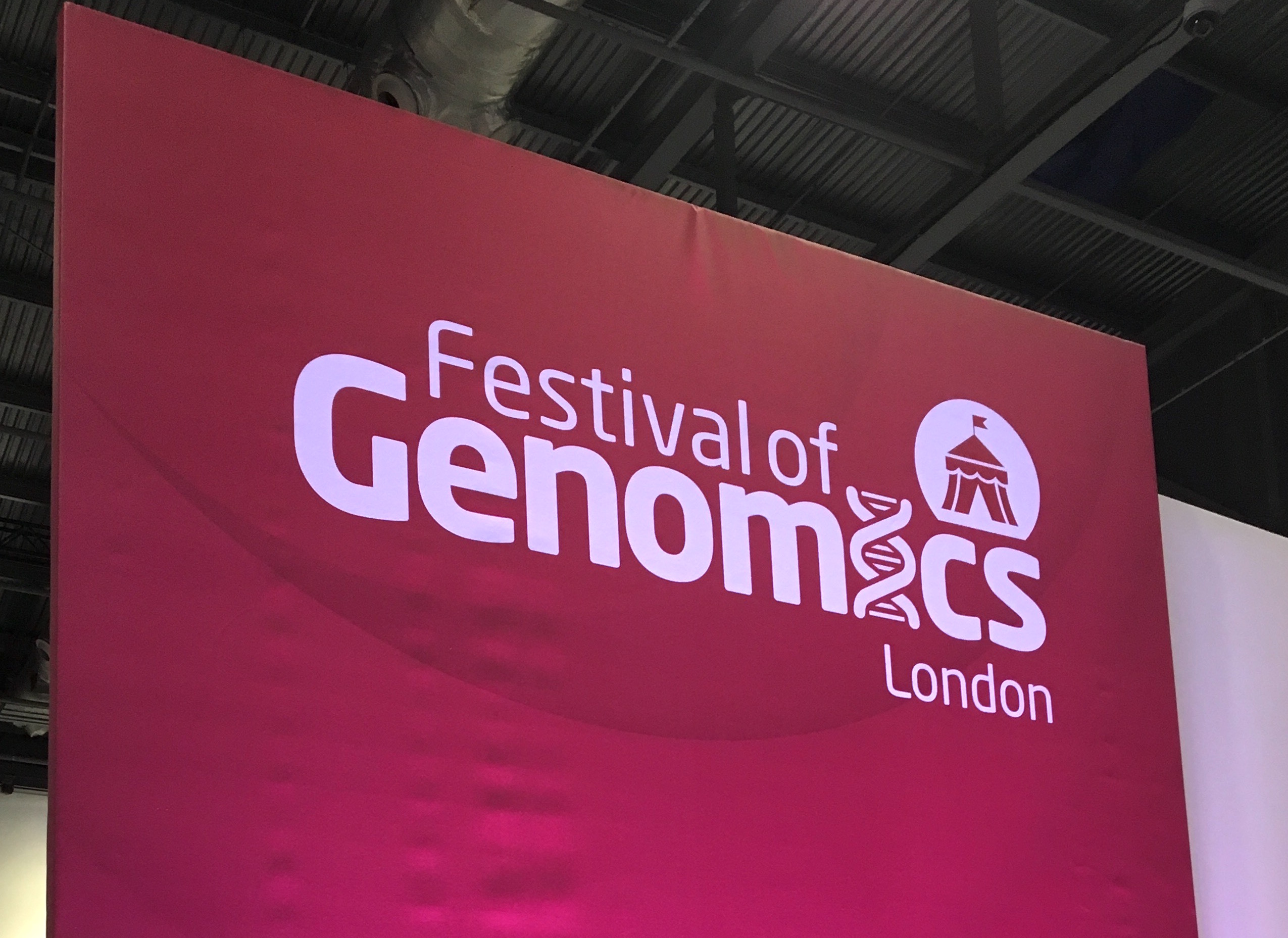
Graffiti art wall at the Festival of Genomics, London
It is just over 20 years since scientists first deciphered the genome sequence of a free-living organism. The technology used to reveal the genetic blueprint present in every living cell has given rise to the field of genomics.
Rapid developments in DNA sequencing technologies have meant that that it continues to become cheaper and faster to generate a genome sequence. The last few years of genomics have been characterised by a move towards individual genome sequences – a paradigm shift that has paved the way for the promise of personalised medicine.
The much talked about $1,000 genome is finally a reality, and this has dramatically increased the potential of genomics to change society.
Indeed, it was clear at the Festival of Genomics conference that we are now on the cusp of genomics becoming a routine part of healthcare. This presents many opportunities but also raises many challenges.
Genomics in the NHS
Professor Sue Hill, Chief Scientific Officer of NHS England, gave a great overview of how genomics approaches are already being put into place – driven by the ongoing work of the pioneering 100,000 Genomes Project.
Professor Hill observed that cancer is a key area for the NHS, with a need to improve survival rates and patient experience, and that there is a huge potential for genomics-driven diagnoses. The existing network of 13 Genomic Medicine Centres is critical for providing a genomics infrastructure for the NHS, and has helped identified a need for new handling and processing procedures for cancer samples.
She concluded by observing that the 100,000 Genomes Project will lead to the personalisation of treatment and that genomic medicine, embedded as part of routine health care, should be happening as soon as 2020.

Professor Dame Sally Davies speaking at the Festival of Genomics, London
UK leading the way
A complementary talk to Professor Hill’s was given by Professor Dame Sally Davies, the Government's Chief Medical Officer. In a rousing speech, she claimed that the UK is now leading the world and that we are the first country to develop a semi-automated genomics pipeline as part of a healthcare system.
The 100,000 Genomes Project means that some patients are already receiving genomic diagnoses and treatments. However, Dame Sally argued that if genomics is to be embedded into routine healthcare that “we have to take the public and our patients with us”. The need for consent and confidentiality is reflected by the fact that there is a Professor of Ethics on the board of Genomics England.
She argued that everyone needs to get involved and that genomics has to stop being the province only of clinical geneticists – and that we need haematologists, cardiologists, and cancer specialists to become involved. Concluding her talk, she promised to remain a ‘champion for genomics' and will ensure that it remains a priority for the government.
Challenges for education and counselling
Something that was new to me at this conference was the concept of ‘genomic counselling’ – the natural successor to ‘genetic counselling’. The ability to sequence all of our genes in one go raises many issues for counselling. Whereas people can undergo specific genetic tests for individual mutations — the BRCA mutations that can increase the risk of breast and ovarian cancer for example — genomics means that patients may have a deluge of test data to deal with.
Vicki Kiesel, Genetic Director at GeneHealth UK, predicted that the genomics revolution will fuel a growing need for genomic counsellors. A patient may undergo genome sequencing in order to clarify the nature of one particular disease, but the data may reveal many other genetic risks.
If genomics is to become embedded into healthcare then there is an increasing need for everyone involved in patient care to have access to relevant genomics training. This is the goal of the NHS Genomics Education Programme which has a remit of ensuring that the NHS has the ‘knowledge, skills and experience necessary to remain a world leader in genomic medicine’.
Professor Paul Workman explaining why genomics is important to cancer research.
Sequencing in time and space
The ability of cancers to evolve is a major challenge in developing effective treatments.Professor Paul Workman, the ICR’s Chief Executive, said that cancer’s ability to develop resistance to drugs is a major clinical challenge and that we need to think about cancer from an evolutionary viewpoint if we are to be successful in fighting it.
Professor Workman highlighted the fact that although we know many genes that are involved in cancer, very few of them have drugs that can target them. He identified the need to extend the druggable cancer genome as one of several priorities for research.
Concluding his conference talk, he said that we need to get away from the notion of sequencing a cancer ‘once and for all’ – cancers will change and we must be prepared to sequence cancer genomes more than once in order to track their evolution, and identify the best treatments at different time points.
This last point was something that stuck with me after the conference. Not only are the days of having one genome per species behind us, but even the concept of one genome per individual is seeming out of date. The future, potentially the very near future, will see genomics routinely adopted into healthcare provision and it no longer seems a fantasy to imagine getting regular ‘genomic check-ups’ at the doctor.
